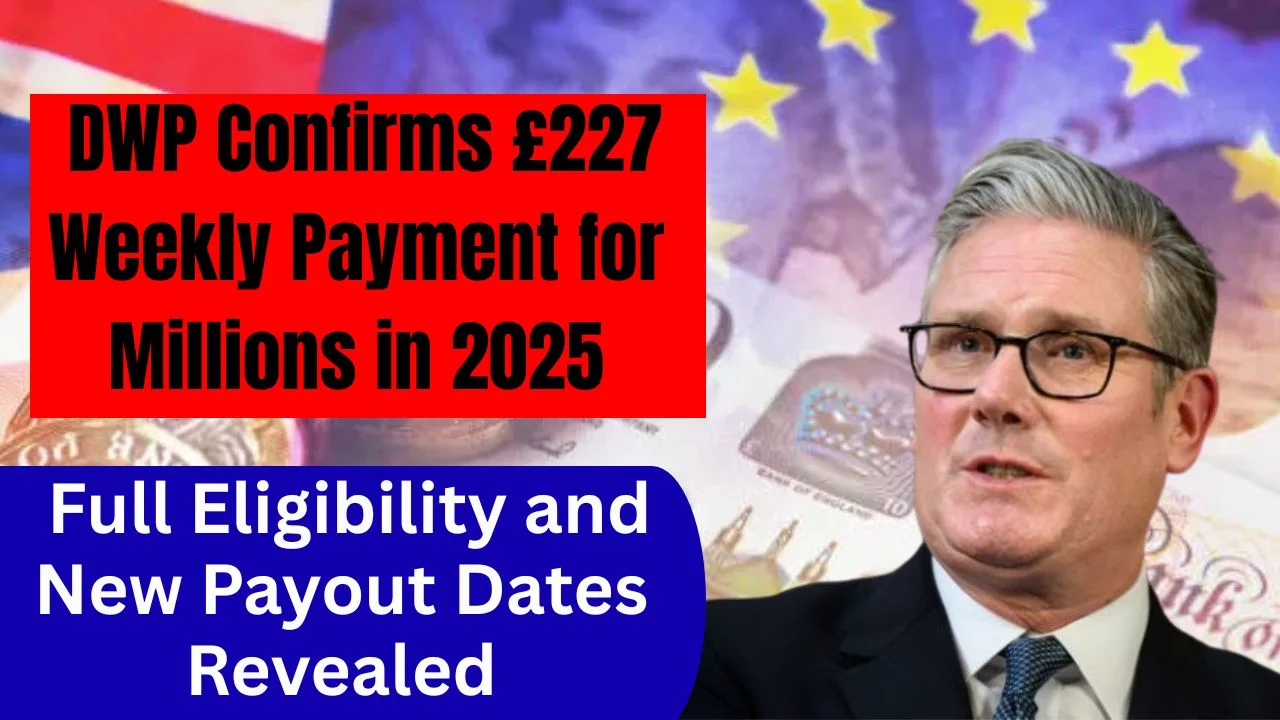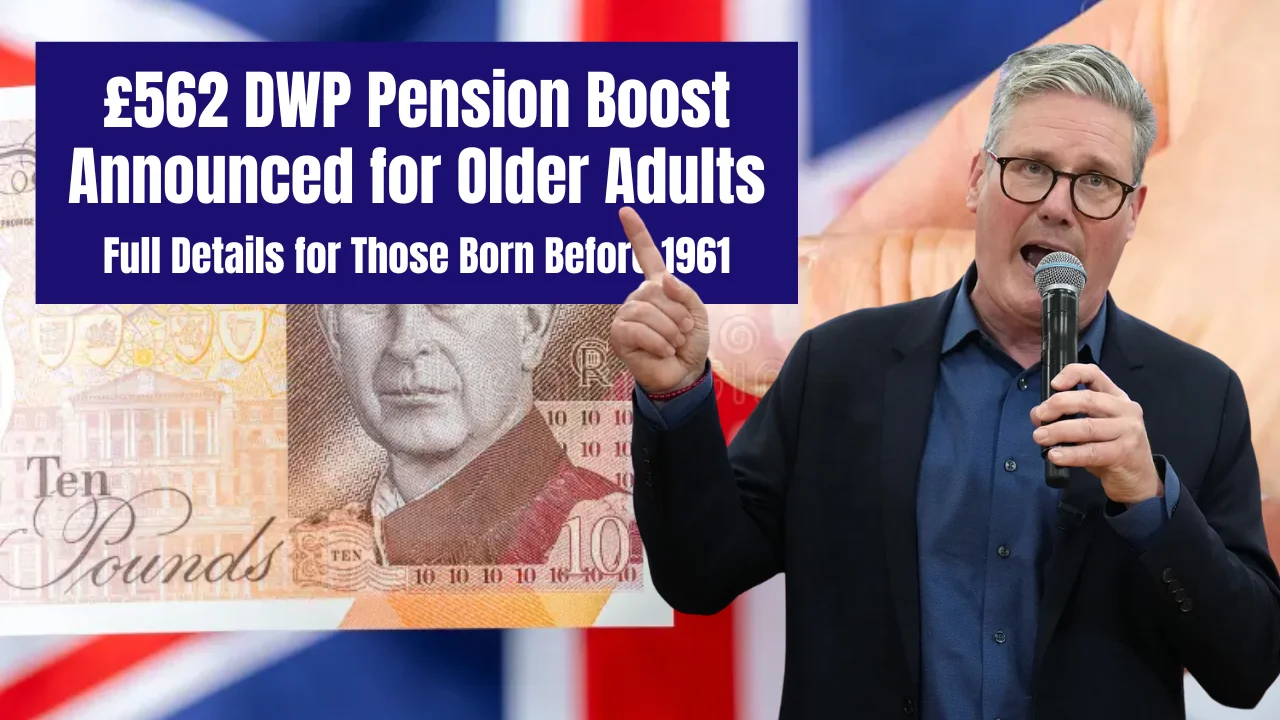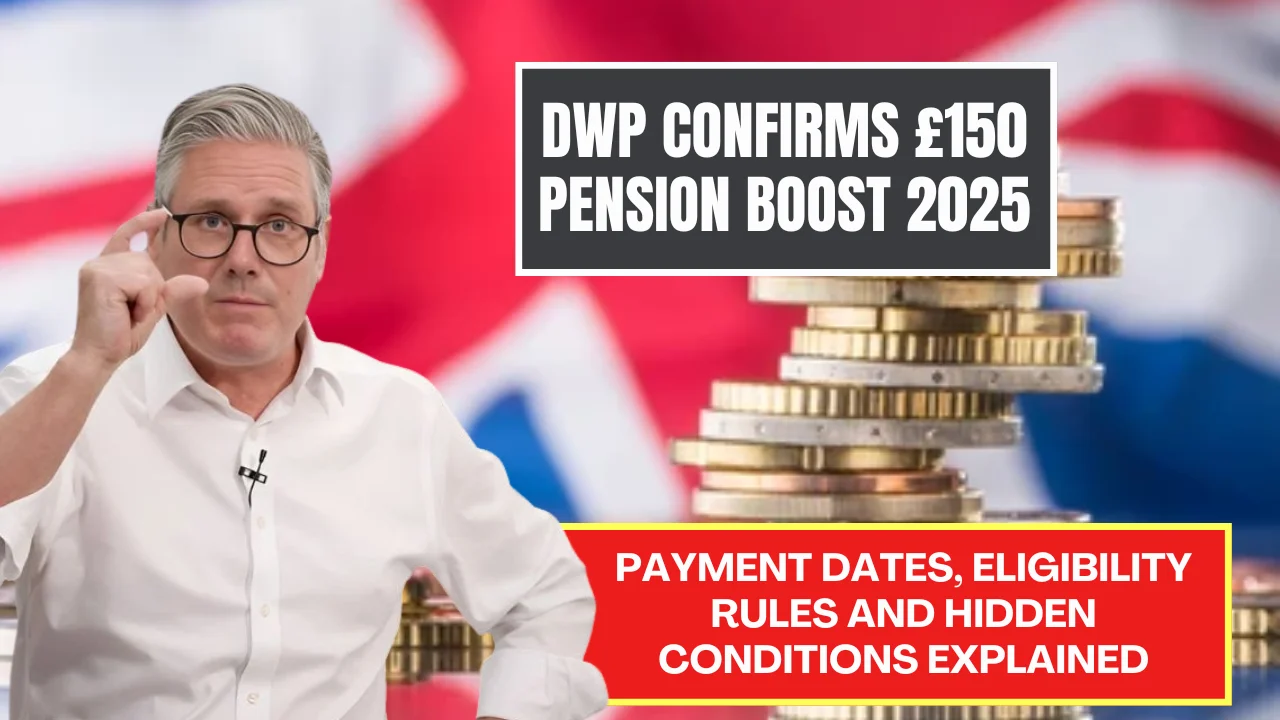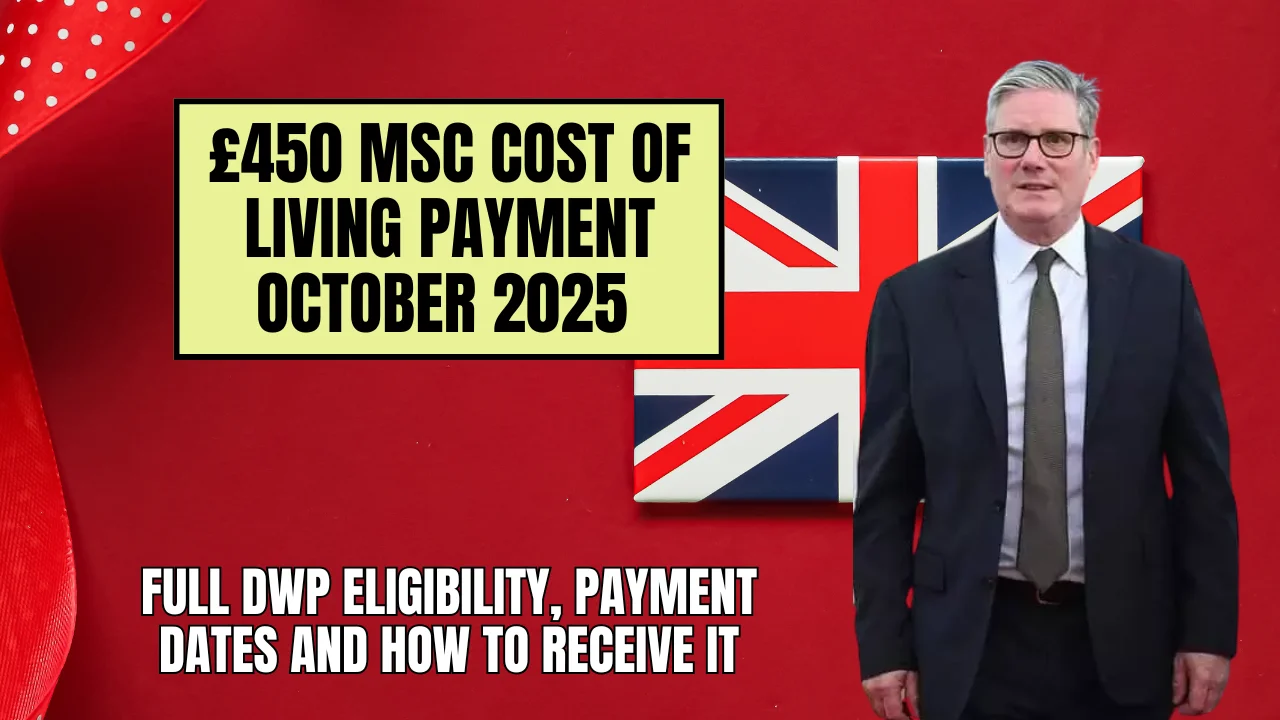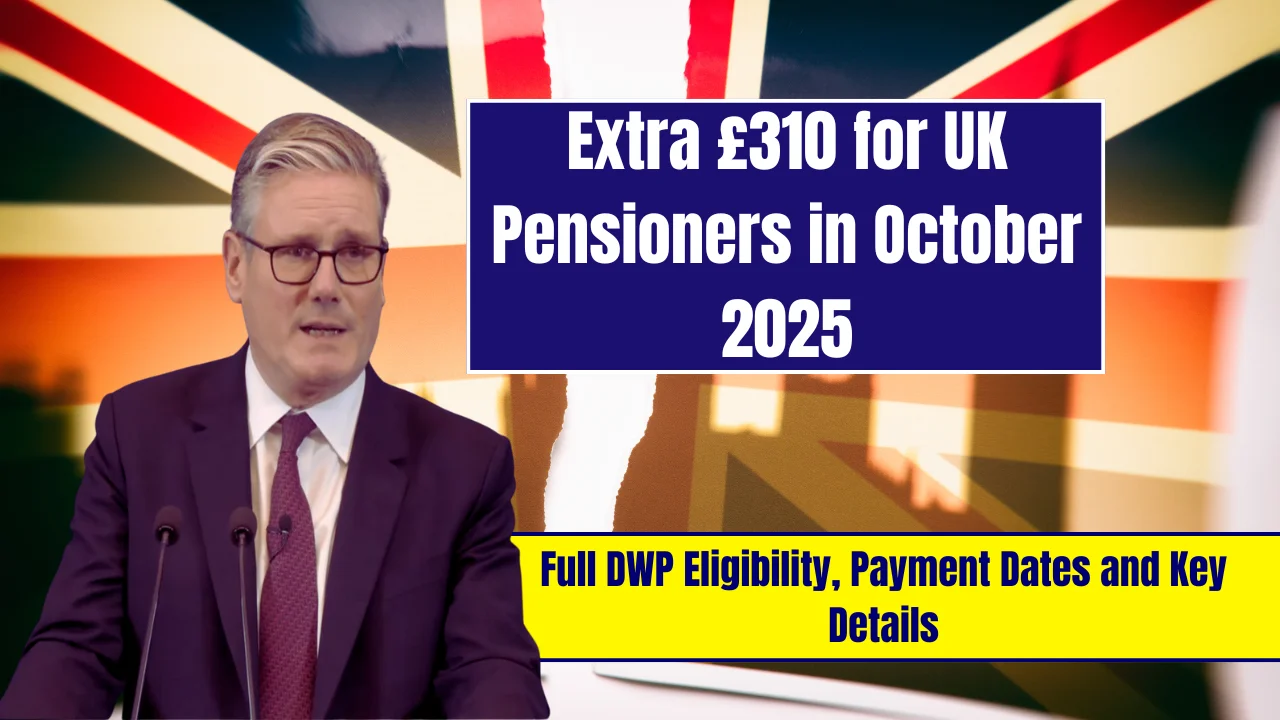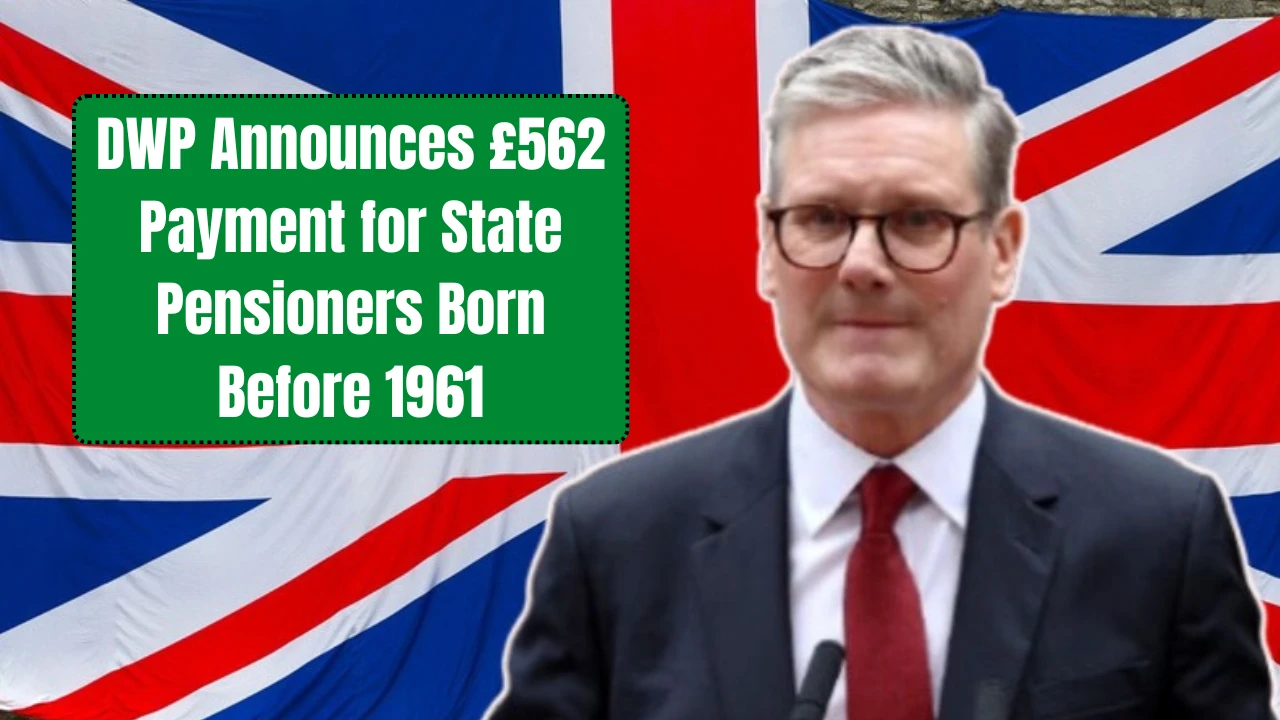The DWP £227 weekly payment is finally confirmed, and it is great news for millions of people across the UK. This update comes at a time when many are struggling with increasing bills, housing costs, and food prices. The Department for Work and Pensions has stepped in to ease the financial burden for pensioners, disabled individuals, and families on low incomes by introducing one of the biggest weekly benefit increases in years.
From April 2025, eligible individuals will start receiving this new rate, making a meaningful difference in their monthly income. This article will explain everything you need to know about the DWP £227 weekly payment, including who qualifies, when you will be paid, and how to check if you are eligible. We will also break down the changes in a simple and clear format so you can be fully prepared before the new financial year begins.
Who Can Get the DWP £227 Weekly Payment in 2025?
The DWP £227 weekly payment is set to help a large group of people, but it will not apply to everyone. It mainly targets those who receive the State Pension, Pension Credit, and disability benefits such as Personal Independence Payment (PIP) or Disability Living Allowance (DLA). The payment increase is part of the government’s commitment to the triple lock system, which ensures pensions rise each year based on whichever is higher between inflation, average wage growth, or a guaranteed minimum of 2.5 percent.
In 2025, the triple lock has triggered a major boost due to strong wage growth. This means that many claimants will now receive up to £227 per week. That equals over £11,800 per year, a significant increase for anyone relying on benefits to make ends meet. Universal Credit claimants who meet certain disability or age conditions may also see a payment rise, depending on their personal situation.
Overview Table
| Key Detail | Information |
| Weekly Payment Amount | £227 |
| Start Date | April 2025 |
| Benefit Types Affected | State Pension, Pension Credit, PIP, DLA, UC |
| Eligibility Criteria | Age, disability status, NI contributions |
| Payment Frequency | Weekly (or monthly equivalent) |
| How Payments Are Made | Direct bank deposit |
| Triple Lock Trigger | Wage growth higher than inflation in 2024 |
| Mid-Year Review | August 2025 |
| Extra Support for Pensioners | Warm Home Discount, Free TV Licence |
| Estimated Yearly Increase | Over £11,800 if receiving full State Pension |
What is the £227 Weekly Payment?
The £227 weekly payment is an updated benefit rate set by the DWP for the upcoming financial year starting in April 2025. It applies mainly to State Pension recipients but also impacts those receiving certain disability benefits and Pension Credit. This is part of the government’s annual process of increasing support in line with economic conditions.
The rise was triggered by wage growth, which outpaced both inflation and the minimum 2.5 percent guarantee in the triple lock system. This ensures that pensioners do not fall behind in terms of financial support as the cost of essentials continues to rise.
Who Will Receive the New Payment?
The DWP £227 weekly payment will apply to millions, but not all benefits will reach the same amount. Eligibility includes:
- Individuals receiving the full new State Pension
- Claimants of Pension Credit
- People on PIP or DLA who qualify based on their health conditions
- Some Universal Credit claimants meeting age or disability requirements
For those receiving a combination of benefits, such as daily living and mobility components under PIP, the total weekly amount may even exceed £227.
Why the Increase is Happening
This increase is happening because the government has committed to protecting pensioners’ income through the triple lock policy. In 2024, average wages increased more than inflation, which means wage growth became the factor used for calculating the 2025 rise.
This policy is designed to make sure pensioners and vulnerable groups keep up with the rising cost of living. The triple lock is a key promise in maintaining financial fairness for those who have retired or are unable to work due to disability.
How the New Rates Are Calculated
The new £227 rate is based on the full new State Pension introduced in 2016. To get the full amount, you usually need at least 35 qualifying years of National Insurance contributions. If you have fewer years, you will receive a reduced rate.
Other benefits like Pension Credit and disability-related payments will also see increases, but the exact amount varies based on individual circumstances, including your level of disability, income, and living situation.
Payment Dates and Schedule
The first increased payments under the new system will begin in April 2025. Payments will continue to be made on the same weekday as determined by your National Insurance number. However, there will be some adjustments for bank holidays.
Key payout dates include:
- April 2025: Start of new payments
- May 2025: Adjustments for bank holiday weekends
- August 2025: Mid-year review
- December 2025: Christmas bonus payment included
Pension Credit and Additional Support
If you are a pensioner with a low income, Pension Credit can offer extra financial help. With the rise in thresholds for 2025, more people will now qualify for this support. This is designed to top up your income to ensure it meets a minimum standard.
In addition, Pension Credit claimants may also receive:
- A free TV licence if over 75
- Cold Weather Payments during harsh winter months
- Warm Home Discount for energy bills
- Council Tax reductions
These added benefits can make a big difference throughout the year.
Impact on Disabled Claimants
People receiving PIP or DLA will also see their weekly rates go up. This is important for those who rely on these benefits to manage daily living and mobility costs, especially as healthcare prices and general expenses have risen.
For instance, PIP’s enhanced daily living rate may reach around £184.30 per week, with mobility payments potentially over £70. For many claimants, this brings their total benefit above the new standard pension rate.
Effect on Universal Credit Claimants
Although Universal Credit is mostly designed for working-age individuals, those with disabilities or who act as carers may receive increased support. The DWP aims to align these payments with pensioner support so that everyone receives fair help.
Claimants will be informed of any changes to their payments either online or by letter.
How to Check Eligibility
You can check if you qualify for the DWP £227 weekly payment through the GOV.UK website or by contacting the DWP. You will need to provide your date of birth, current benefit information, and National Insurance details.
To be eligible, you must generally:
- Be over the State Pension age (currently 66)
- Have made enough NI contributions
- Receive or be eligible for one of the qualifying benefits
What to Do If Your Payment is Missing or Delayed
If you do not receive your payment on the scheduled date, the DWP advises waiting 24 hours before taking any action. Payments may be delayed due to weekends or bank holidays. If your payment is still missing after two working days, contact the DWP for support.
Other Upcoming DWP Payment Changes
In addition to the new weekly rate, the DWP is making broader improvements to the benefit system. These include:
- Streamlining the Winter Fuel Payment process
- Making it easier to claim benefits online
- Expanding the Cost of Living Support Scheme for 2025–26
These changes aim to ensure faster, more efficient support for all claimants.
Government’s Statement on the Update
According to the DWP, the 2025 payment increase shows their ongoing commitment to protecting pensioners and vulnerable people. By maintaining the triple lock and updating benefit systems, the government wants to ensure that no one falls behind during difficult economic times.
How This Change Benefits Pensioners
For those relying on the State Pension as their main income, this change brings real relief. Over a full year, the increase adds up to more than £11,800. This helps cover essential expenses like rent, groceries, energy, and medical costs.
The announcement also reminds people approaching retirement to check their eligibility, especially as millions of pounds in benefits go unclaimed every year.
Preparing for the 2025 Changes
The DWP advises all benefit recipients to make sure their records are up to date. This includes:
- Checking your National Insurance contributions
- Updating your bank account information
- Reviewing benefit award letters
Doing this in advance can help prevent payment delays when the new system begins.
Final Thought
The DWP £227 weekly payment is a much-needed update that offers real financial support in a time of rising costs. Whether you are a pensioner, disabled individual, or low-income family, this change could make a big difference. Be sure to check your eligibility and share this information with anyone who might benefit.
FAQs
Individuals over State Pension age with enough NI contributions and receiving qualifying benefits.
The new payment rate starts from April 2025.
Yes, depending on the type and level of benefit, total payments can exceed £227.
Visit the official GOV.UK website or contact the DWP directly with your personal details.
Wait 24 hours, then contact the DWP if the payment is still missing after two working days.
